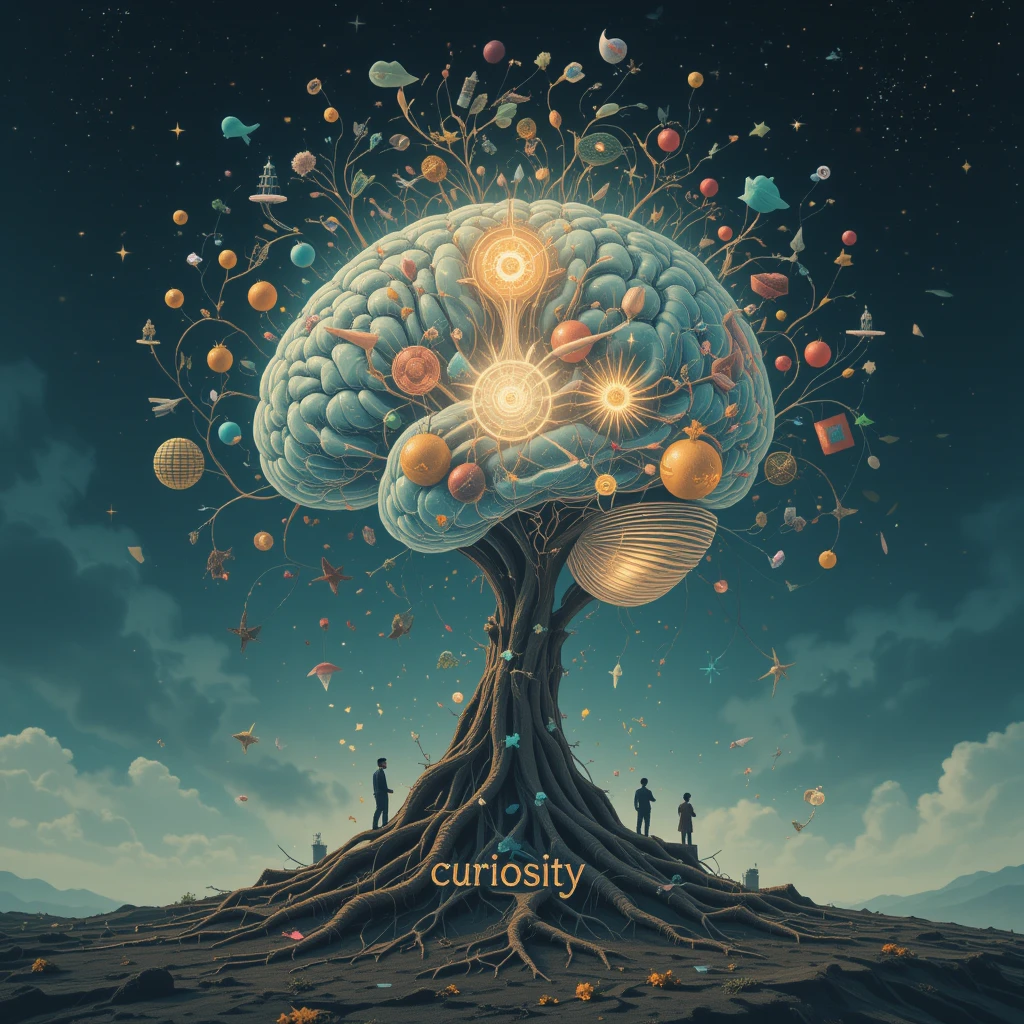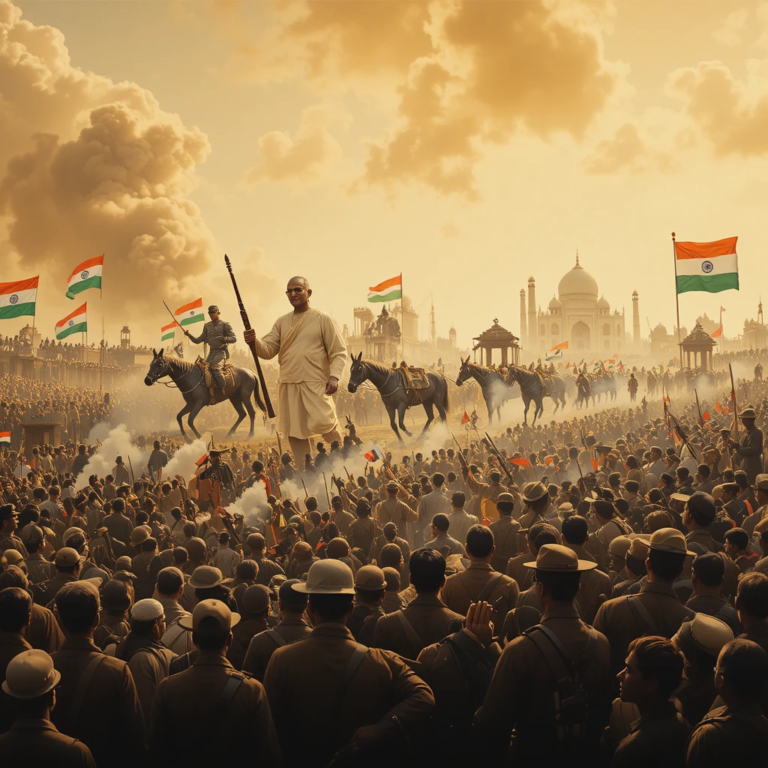Introduction
Curiosity—the deep human impulse to question, explore, and seek understanding—has shaped civilizations across history. From early myths explaining the cosmos to modern scientific theories about the Big Bang and quantum reality, curiosity is the motor of discovery. But its relationship with religion is complex.
Table of Contents
Religions often provide ultimate answers to existential questions through revelation and tradition. Science, by contrast, encourages doubt, experimentation, and falsifiability. The result has been centuries of tension between religious authority and free inquiry. At times, religions have suppressed curiosity to preserve orthodoxy; at other times, they nurtured intellectual exploration.

This essay examines whether religion suppresses curiosity while science nurtures it, with an emphasis on which religions or traditions historically curtailed inquiry, how texts and doctrines framed curiosity, and how philosophy, psychology, and sociology interpret the tension.
1. Defining Curiosity
Psychologists distinguish between:
- Epistemic Curiosity – desire for knowledge and explanations (central to philosophy, science, and theology).
- Perceptual Curiosity – response to novelty or sensory surprises.
Religion and science mainly intersect with epistemic curiosity: whether it is promoted or restricted defines their historical role in intellectual progress.
Curiosity can be understood in at least three ways:
- Philosophical Curiosity – the quest for ultimate truths about reality, existence, and meaning.
- Scientific Curiosity – systematic questioning of the natural world through observation, experimentation, and reasoning.
- Everyday Curiosity – the psychological tendency to seek novelty, ask questions, and explore.
Modern psychology links curiosity to cognitive development and well-being (Kashdan & Silvia, 2009). Suppression of curiosity, by contrast, leads to intellectual stagnation, conformity, and authoritarianism (Deci & Ryan, 1985).

With this framework, we can now compare how Buddhism and Brahmanical Hinduism treated curiosity.
2. Religion and the Suppression of Curiosity
2.1 Christianity: Curiosity as Sin and Heresy
Early Christian thought was often suspicious of curiosity. St. Augustine (354–430 CE) in Confessions described curiositas as a temptation distracting from God. Curiosity was tolerated if directed toward Scripture but condemned when directed at worldly phenomena.
- The Index of Forbidden Books (1559–1966) institutionalized censorship, banning works of Galileo, Copernicus, Descartes, and others.
- Galileo Galilei (1633) was condemned by the Inquisition for advocating heliocentrism. His trial symbolizes suppression of scientific curiosity.
- Giordano Bruno (1548–1600), who speculated about infinite worlds, was burned at the stake.
Christianity, especially Catholic orthodoxy in the Middle Ages, stands as a prime example of institutional suppression of curiosity.
2.2 Islam: From Rational Inquiry to Orthodoxy
The Islamic Golden Age (8th–12th centuries) nurtured profound curiosity in astronomy, medicine, and philosophy. Scholars like Avicenna (Ibn Sina) and Averroes (Ibn Rushd) integrated Greek rationalism with Islamic theology.
- The Muʿtazilites, an early school, emphasized reason and logic, promoting intellectual curiosity.
- Al-Ghazali’s The Incoherence of the Philosophers (1095) criticized rationalist speculation, arguing that too much philosophical curiosity endangered faith.
- Later theologians like Ibn Taymiyyah (13th–14th century) reinforced hostility toward philosophical inquiry.
- Madrasa curricula increasingly restricted education to Quranic study and jurisprudence.
Thus, Islam shifted from a golden period of curiosity to institutional orthodoxy suppressing free inquiry, though isolated traditions of science and philosophy continued.
2.3 Brahmanical Hinduism: Scriptural Authority and Suppression of Heterodoxy
The Brahmanical tradition (later called Hinduism) maintained philosophical schools (darśanas) like Nyāya (logic), Sāṃkhya (cosmology), and Vedānta (metaphysics). However, these were bound by scriptural authority—the Vedas were considered infallible.
2.3.1 Suppression of Cārvāka
The Cārvāka materialist school (6th century BCE onward) denied gods, afterlife, and scriptural authority, emphasizing direct perception (pratyakṣa) as the only valid source of knowledge.
- Their works were systematically destroyed or ignored.
- Surviving fragments appear mainly in Brahmanical polemics that sought to refute them.
2.3.2 Knowledge Restricted by Caste
The Manusmṛti and other texts prohibited Śūdras (lower castes) and women from studying the Vedas. Intellectual curiosity was monopolized by upper castes. This made inquiry a privilege of birth rather than a universal right.
Thus, while Brahmanical schools debated extensively, curiosity was confined within scriptural boundaries and caste restrictions.
2.4 Buddhism: Logic and Epistemology as Inquiry
Unlike Brahmanical traditions, Buddhism cultivated independent traditions of logic and epistemology.
2.4.1 Early Buddhism and Pragmatism
The Kalama Sutta encourages free inquiry: the Buddha advised followers not to accept claims blindly but to test them with reason and experience. This is a strikingly anti-dogmatic approach.
At the same time, the Buddha discouraged cosmological speculation (e.g., whether the universe is eternal), labeling such questions “unanswerable” (avyākata). The focus was on liberation from suffering rather than abstract theorizing.
2.4.2 Buddhist Logic
From the 2nd century CE onward, Buddhist scholars pioneered rigorous logical systems:
- Nāgārjuna (c. 150–250 CE) developed the Madhyamaka school, using dialectical reasoning to deconstruct essentialist views.
- Dignāga (480–540 CE) founded the Buddhist school of logic (hetuvidyā), formulating a system of inference.
- Dharmakīrti (7th century CE) refined epistemology, emphasizing perception and inference as valid means of knowledge (pramāṇa).
These contributions had profound influence on Indian intellectual life and even shaped later Tibetan and East Asian Buddhist traditions.
Thus, Buddhism did not suppress curiosity but channeled it into logic, debate, and epistemology, making it one of the most inquiry-friendly traditions.
2.5 Judaism: Debate within Boundaries
Judaism values debate and commentary, as seen in the Talmud, where centuries of rabbinical argumentation reflect intellectual curiosity.
Yet boundaries were enforced:
- Baruch Spinoza (1632–1677), who denied the divine origin of the Bible, was excommunicated. His radical curiosity was punished, though his ideas influenced Enlightenment rationalism.
Judaism thus permitted wide-ranging debate within scriptural frameworks but condemned radical departures.
3. Why Religions Suppress Curiosity
- Preservation of Authority – questioning undermines clergy and hierarchy.
- Fear of Heresy – diversity of thought threatens unity.
- Spiritual Priorities – salvation, nirvana, or moksha were valued over empirical exploration.
- Social Order – controlling curiosity reinforced caste, gender, or communal boundaries.
4. Science as Institutionalized Curiosity
Science differs fundamentally because it requires doubt.
- Karl Popper: scientific theories must be falsifiable.
- Darwin’s theory of evolution challenged religious creation myths, fueling vast curiosity about biology.
- Modern physics (quantum mechanics, relativity) opens ever deeper questions, showing curiosity as endless.
Unlike religion, science does not fear uncertainty; it thrives on it.
5. Perspectives from Philosophy, Psychology, and Sociology
5.1 Philosophy
- Bertrand Russell: religion stifles curiosity through dogma.
- William James: religion satisfies existential curiosity about meaning.
5.2 Psychology
- Studies (Silvia, 2008) show dogmatic belief reduces epistemic curiosity.
- Saroglou (2010) links authoritarian religiosity with lower openness to experience.
- Yet, spirituality without rigid dogma can enhance curiosity.
5.3 Sociology
- Max Weber: Protestant rationalism encouraged scientific curiosity.
- Religious suppression is strongest when religion merges with political power.
6. Which Traditions Suppressed or Nurtured Curiosity?
- Strong Suppression:
- Christianity (Medieval Catholic Church)
- Islam (post-12th century orthodoxy)
- Brahmanical Hinduism (caste restrictions, suppression of Cārvāka)
- Conditional Encouragement:
- Judaism (debate allowed, but heresy punished)
- Buddhism (logic, epistemology nurtured curiosity, though cosmological speculation discouraged)
Conclusion
Religion’s relationship with curiosity is not uniform. Brahmanical Hinduism, Catholic Christianity, and orthodox Islam often suppressed inquiry to preserve authority. Judaism allowed internal debate but punished heresy. Buddhismstands out for cultivating logic and epistemology, though it discouraged metaphysical speculation irrelevant to liberation.
Science, unlike religion, institutionalizes curiosity through skepticism, experiment, and falsifiability. Yet, even science can be suppressed when tied to ideology or politics.
Thus, the true conflict is not religion vs. science, but dogma vs. inquiry. Traditions—whether religious or secular—that embrace questioning enhance curiosity. Those that fear doubt suppress it.
References
- Augustine, St. (397). Confessions.
- Berlyne, D. E. (1960). Conflict, Arousal, and Curiosity. McGraw-Hill.
- Heilbron, J. (2010). Galileo. Oxford University Press.
- Russell, B. (1935). Religion and Science. Oxford University Press.
- James, W. (1902). The Varieties of Religious Experience. Harvard University Press.
- Popper, K. (1959). The Logic of Scientific Discovery. Routledge.
- Al-Ghazali. (1095). The Incoherence of the Philosophers.
- Saliba, G. (2007). Islamic Science and the Making of the European Renaissance. MIT Press.
- Weber, M. (1905). The Protestant Ethic and the Spirit of Capitalism.
- Silvia, P. J. (2008). “Interest—the Curious Emotion.” Current Directions in Psychological Science.
- Saroglou, V. (2010). Religion, Personality, and Social Behavior. Psychology Press.
- Spinoza, B. (1670). Theological-Political Treatise.
- Dunne, J. D. (2004). Foundations of Dharmakīrti’s Philosophy. Wisdom Publications.
- Matilal, B. K. (1998). The Character of Logic in India. SUNY Press.




